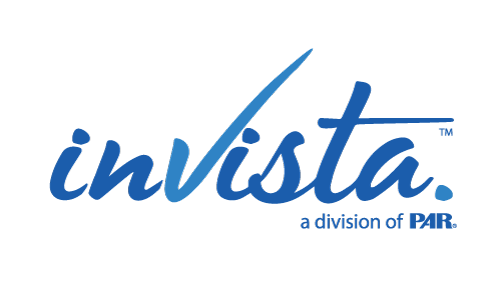Did you know you can boost your employees’ productivity by 56% while reducing turnover by 50%? It starts with a step well within your grasp—creating a supportive and inclusive work environment.
One important ingredient for achieving this is psychological safety. Psychological safety has an important impact on workplace dynamics and helps create an environment where employees feel safe to speak up and contribute their best ideas.
According to EHS Today’s latest report, 81.8% of companies have already embraced specialized mental health programs, and 6.3% are ready to follow in their footsteps. This shift clearly shows how important it is for employers to recognize the vital role of mental health in the overall well-being of their employees and the growth of their businesses.
In this blog, we’ll take a dive into the concept of psychological safety, its significance to employers, and strategies for cultivating it in your workplace.
What is psychological safety?
Psychological safety refers to an employee’s perception of the work environment as safe for interpersonal risk-taking. It creates a space where individuals feel comfortable expressing ideas, sharing concerns, and taking calculated risks without fear of negative consequences such as humiliation or retribution. When employees feel psychologically safe, they are collaborate, innovate, and contribute their best efforts to achieve collective goals.
The importance of psychological safety at work
Here are a few compelling reasons why psychological safety is a vital ingredient for thriving organizations:
Enhances the company’s brand. Treating employees well pays off beyond the workplace. Satisfied employees become enthusiastic advocates for your organization, sharing their positive experiences with friends, family, and even on job search platforms and social media. Their direct endorsement of your company culture is a powerful advertisement, attracting talented job seekers to your brand.
Drives diversity and inclusion. According to the Center for Talent Innovation, “undermining behavior from managers” plays a significant role in women leaving the tech industry. Furthermore, 87% of women reported receiving demeaning comments from colleagues, while 66% felt excluded from crucial social and networking opportunities solely because of their gender.
Championing psychological safety sends an impactful message to employees from every age, sex, color, race, and religion that your company is a safe space for them. It tells them that none of their contributions will be overlooked and that you value their work.
Moreover, inclusivity helps build deeper connections between colleagues and the organization.
Boosts employee confidence. In a psychologically safe work environment, employees are encouraged to express their opinions, ideas, thoughts, and concerns.
This open communication cultivates stronger collaborative bonds with colleagues, managers, and customers, driving teamwork to remarkable heights.
Encourages innovation and creativity. Creating psychological safety sparks an environment in your organization that ignites innovation and fuels creativity. That is because when your employees feel the freedom to share their ideas, they do so without the fear of judgment. They become more willing to offer unique perspectives and challenge conventional thinking.
With this dynamic exchange of ideas, your organization can reach solutions much more efficiently, leading to a culture of continuous improvement and breakthrough innovations.
Reduces employee turnover. Creating a safe, respectful, and valued workplace means giving employees one more reason to stick with your company and not seek opportunities elsewhere. When your employees trust your organization and their colleagues and leaders, they know their contributions are noticed, remembered, and genuinely appreciated. Who would want to leave a great place like that?
Moreover, reducing employee turnover will help you retain top talent and experienced employees, saving valuable time and resources that would otherwise be spent on hiring new employees.
Boosts performance and productivity. When employees feel psychologically safe, they are more likely to be fully invested in their work. This leads to better performance, motivation, engagement, and a willingness to share new ideas and perspectives.
Promotes learning and growth. Psychological safety serves as the catalyst for a culture of learning and growth within organizations. When employees feel safe to ask questions, seek feedback, and share their mistakes, they actively engage in continuous learning and development.
This makes your organization a space where individuals and teams thrive, continuously acquire new skills, and adapt to evolving business needs.
Enhances collaboration and teamwork. In an environment blooming with psychological safety, employees find it easy to collaborate and work together. Without the fear of judgement lingering over their heads, they are able to trust and support one another, fostering a cohesive and synergistic teamwork culture.
Boosts employee well-being and engagement. Feeling psychologically safe at work helps minimize stress and anxiety, paving the way for employees’ enhanced well-being and job satisfaction.
Moreover, by nurturing this safe space, you’ll witness a surge in employee motivation, dedication, and productivity.
Strategies for cultivating psychological safety
You’re convinced that psychological safety is what your employees need. But how can you encourage psychological safety within your organization? Here are a few suggestions.
Lead by example. Leaders and managers play a crucial role in setting the tone for psychological safety. By modeling open and inclusive behaviors, leaders can create an environment where employees feel safe to express themselves.
Foster a learning culture. You might have hired knowledgeable and experienced employees, but there’s no guarantee that they will never make mistakes. But how you handle their mistakes is what will make all the difference.
Foster a growth mindset where you encourage the employees to learn from their failures. Make continuous learning and development a priority in your organization. Set recognition and reward opportunities for employees for their efforts in seeking new knowledge and skills.
Provide resources and support. Offer resources and support systems to employees, such as training programs, mentoring opportunities, and access to counseling services. This shows your organization’s commitment to the well-being of its employees and emphasizes the value of their psychological safety.
Encourage open communication. You need to establish channels for open communication and provide opportunities for employees to voice their opinions and concerns. Regular team meetings, feedback sessions, and suggestion boxes can effectively promote open dialogue and create a safe space for expression.
Steps forward
Many organizations today are realizing that psychological safety is not just a buzzword. It’s a must-have ingredient for any thriving business. Creating a place where people feel comfortable expressing their thoughts and feelings openly encourages creativity, teamwork, and employee dedication.
As HR professionals and hiring managers, it is essential that we prioritize psychological safety and implement strategies that nurture a culture of openness, trust, and respect.
Remember, building psychological safety is an ongoing process that requires continuous effort and commitment. By prioritizing psychological safety, your organization will create a workplace where employees feel empowered, motivated, and valued, ultimately driving overall success.
Take the guesswork out of hiring. Learn more about how InVista has helped other organizations like yours.
Download our free handbook to learn more about structured interviews and make better hiring decisions.


Recent Comments